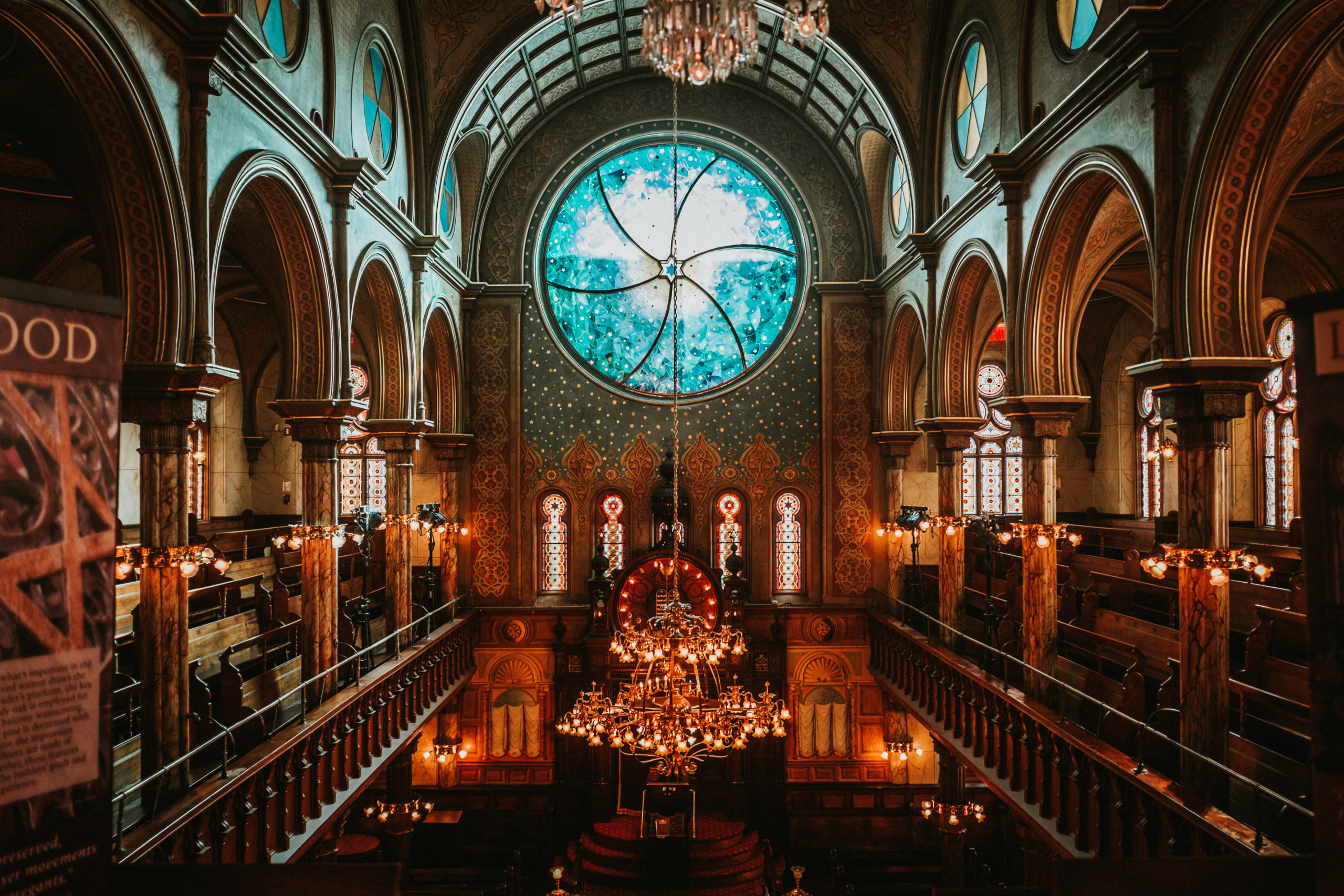Darwin’s Jews
A sophisticated debate about Darwinian evolution is going on at the topmost levels of the Catholic Church. In the Jewish community, however, the discussion remains mostly primitive and ill informed. Surely this embarrassing state of affairs can be corrected, and I have a suggestion.
In a nutshell, the debate is over whether evolution was guided or not. Intelligent Design, or ID, asks if a purely material and unguided mechanism like Darwin’s can explain the course of life’s history, including things like the micro-machinery in every cell and the sudden infusion of genetic information in the Earth’s ancient seas 530 million years ago, the famous Cambrian explosion.
Pope Benedict XVI has spoken pointedly of the “intelligent plan” guiding the cosmos, a nod to Intelligent Design. Austrian Cardinal Christoph Schonborn, writing in The New York Times, went further in defining the ways that Darwinism conflicts with a religious worldview. Recently in the official Vatican newspaper, a professor of evolutionary biology fired back that ID “creates confusion between the scientific plane and those that are philosophical or religious.”
In the Jewish community, with a few notable exceptions, no comparable debate is going on. Too many Jews want to be on what they consider the prestige side of the controversy but neglect to look beyond the misleading headlines.
Orthodox Rabbi Eliyahu Stern of the Park East Synagogue in Manhattan has singled himself out as a harsh critic of those who challenge Darwin. We both write for Beliefnet, where Rabbi Stern dismissed Cardinal Schonborn and ID scientists as if they were all backwoods fundamentalists, with their “zeal to make the literal biblical story into a dogma for America.”
In reality, ID theorists would hardly deny that the forms which complex life takes have changed or evolved over hundreds of millions of years. Rather, ID points to positive evidence of a designer’s guiding hand in that long history. More than 475 scientists, at places like Yale, MIT, Rice and the Smithsonian Institution, have affirmed in a signed statement that they doubt the power of Darwin’s selection/mutation mechanism to produce the splendor of life all around us. The Discovery Institute, where I work and which has led the ID movement, compiled the list of Darwin doubters. This is far from biblical literalism.
So why should you care? Because Darwinism, if accepted, makes any meaningful Judaism intellectually untenable.
Many Darwinists know well what is at stake. Their leading biologist, Richard Dawkins of Oxford, forthrightly states that religious “faith is one of the world’s great evils, comparable to the smallpox virus but harder to eradicate.”
Darwin himself appreciated that there was no common ground between his materialistic view and the older understanding that an immaterial designer oversees all that exists. In “The Origin of Species,” Darwin’s working premise is that God has no role in the history of life.
By contrast, in the Friday-night kiddush, a Jew gives witness to the evidence of a transcendent designer, speaking of “all His work which God created to make.” By custom, we stand for this kiddush because it is considered a form of testimony, and in a Jewish court the witness stands. An honest Darwinist should not say kiddush.
In “The Descent of Man” (1871), Darwin spells out the moral implications of his theory, notably that unguided evolution produced the moral laws as much as it did the plants and animals. Such laws could have turned out differently, as the animals could have turned out differently had chance variations led life’s history down a different path.
So there is nothing absolute about our ideas of right and wrong. Wrote Darwin, “We may, therefore, reject the belief … that the abhorrence of incest is due to our possessing a special God-implanted conscience.” If ethics has no such secure foundation, there can be nothing sacred about doing the right thing.
ID may have implications about what is sacred, but is it science? Ask the arch-rationalist Maimonides, who fought a similar fight 800 years ago. Some philosophers claimed they could prove that the universe is eternal and thus had no beginning. Maimonides said this made nonsense of biblical faith, which presupposes a beginning and a designer. Rambam showed that the “proofs” of an eternal universe fell woefully short.
He was right. In 1965 the Bell lab scientists Penzias and Wilson showed how the detection of cosmic background radiation, left over from the Big Bang, proved the universe was finite and had a definite beginning.
In his “Guide of the Perplexed,” Maimonides wrote that combating the Darwinism equivalent of his day was the highest calling of a Jew: “The utmost power of one who adheres to the Torah and who has acquired knowledge of true reality consists … in his refuting the proofs of the philosophers bearing on the eternity of the world.”
Alas, our community remains as a perplexed as ever. What’s needed is more and better-informed debate, particularly among those who take Rambam’s directive to heart, casting illumination on a crucial issue.
David Klinghoffer (www.davidklinghoffer.com) is a senior fellow at the Discovery Institute in Seattle and the author most recently of “Why the Jews Rejected Jesus: The Turning Point in Western History” (Doubleday).
Special To The Jewish Week
